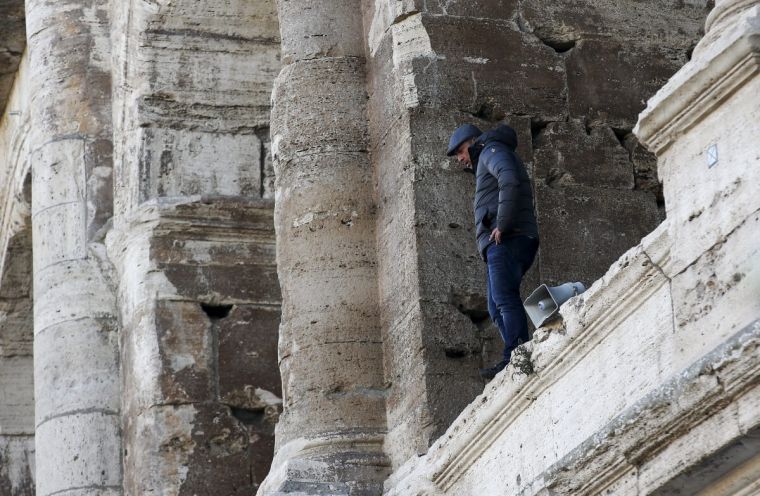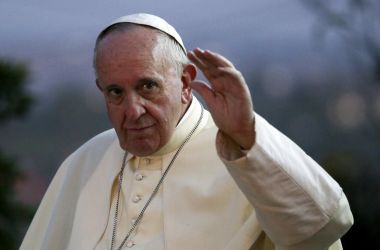Millions of Holy Year pilgrims expected in Rome: Will the city cope?

The Catholic Church's Jubilee Year of Mercy officially begins tomorrow – and Rome is bracing itself for the arrival of millions of pilgrims.
Pope Francis took the world by surprise when he announced the Holy Year in March – and Italy in particular.
Normally such events come along about once in every 25 or 30 years and they signalled well in advance. The next was scheduled to take place in nine years. However, Pope Francis has shown himself to be a man in a hurry, intent on shaking up the Church and bringing the offer of grace and mercy to the forefront of its teaching.
While the influx of up to 25 million pilgrims would normally be welcomed in Rome for the boost to the economy it would bring, his decision has caused a headache for the city authorities.

Before the pilgrims can turn their thoughts to paradise, they will first have to navigate the many obstacles that Romewill throw their way – including clogged traffic, a crumbling public transport system and heightened security.
Local politicians saw the Jubilee as an opportunity to draw on central government funds and spruce up the increasingly dilapidated city.
But whereas last time the city had years to get ready for the pilgrim invasion, this time around it had only had a few months to make plans. Already chaotic preparations were thrown deeper into disarray in October when Rome Mayor Ignazio Marino was forced to resign in an unrelated expenses scandal.
His entire administration had to stand down with him, meaning that with just weeks to go before the Holy Year the city was rudderless. The national government dispatched a team of unelected bureaucrats to step into the breach.
When they took charge, none of the major projects related to the Jubilee, such as repaving pothole-riddled roads, had been started.
"This has fallen at one of the worst possible moments in Rome's history," said Roberta Lombardi, a politician with the anti-establishment 5-Star Movement.
Despite the slow start, the city's new masters say they will meet the challenge.
"This is a test that we absolutely must pass, and we will pass it," Rome's Commissioner Francesco Paolo Tronca told a news conference.
The recent attacks in Paris, in which 130 people died, have also heightened the security risk. Islamic State claimed responsibility for the attacks and later threatened to "invade Rome". The US Embassy has warned its citizens that tourist sites could become terrorist targets.
Italy's interior minister Angelino Alfano has promised to put an extra 700 soldiers on the streets to back up police, and hire more security staff next summer.
Pilgrims will have to pass through metal detectors on their way to St Peter's Square, while surveillance drones will be deployed and a no-fly zone imposed over the papal state during Jubilee festivities.
Officials admit that even this might not be enough.
Terrorism risk
"The risk of terrorism will never be zero, but we are working to attain the level of security that people rightly ask for," said Franco Gabrielli, city security operations chief.
Some city officials believe concerns over possible militant attacks might keep many potential visitors away.
Research firm Censis has forecast that the Jubilee will draw 33 million people to Rome, but a growing number of officials believe that in the end the number of visitors might be closer to 13 million people - the same numbers as in any normal year.
The national and local governments have pledged £175 million for the event.
The city has 31 projects, including resurfacing pavements, renovating public toilets, putting new lighting on the city's elaborate bridges and sprucing up parks.
The commissioner's office expects some will be ready by tomorrow, when Pope Francis opens the Holy Door of St Peter's Basilica, and most to be finished by the end of January 2016, when the Holy Doors at Rome's three major basilicas will all have been opened in separate ceremonies.
Additional reporting by Reuters.











